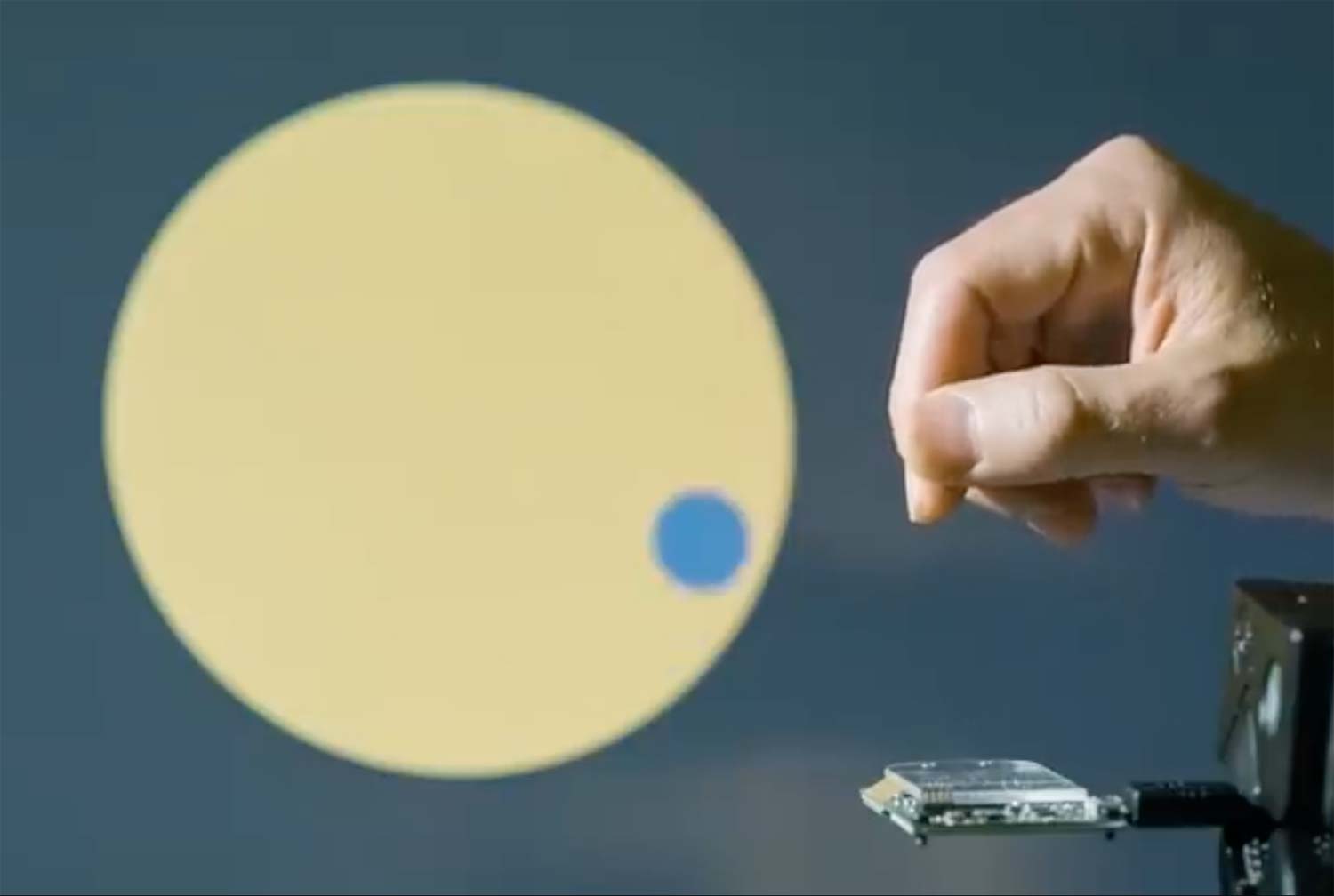Bye, Bye Buttons? Google Hand Motion Detector Approved
The FCC is letting Google move forward with sensors that use radar to detect hand gestures. The technology could give us a new way to interact with smartwatches, speakers and other devices.
We're another step closer to being able to interact with devices using only mid-air gestures, after Google won a key regulatory approval for a radar-based hand motion sensor it's had in the works for a few years.

Earlier this week, the Federal Communications Commission (FCC) gave Google the OK for the company's Soli sensor to operate at higher powers than currently allowed. Reuters, which reported on the FCC's wavier, says Google's sensors can also operate onboard a plane thanks to the ruling.
These sensors are related to Project Soli, an effort by Google's Advanced Technologies and Products division to detect hand gestures using radar. First previewed during Google's 2015 developer conference, Project Soli aims to eschew buttons, touch screens and other interfaces by relying on simple hand gestures instead.
Tapping your index finger on your thumb would simulate pressing a button, for example. Or, in another case demonstrated by Google, making a circular motion with your thumb and index finger could adjust the volume on a nearby device.
"Our team is focused on taking radar hardware and turning it into a gesture sensor," said Project Soli lead research engineer Jamie Lien in a 2015 video showcasing the technology.
The Soli sensors could be embedded in everything from speakers to smartwatches and smartphones, saving you from having to interact with tiny screens or devices that had to be within easy reach. Computers and cars could also potentially benefit from this technology.
MORE: Most Innovative Tech
Get instant access to breaking news, the hottest reviews, great deals and helpful tips.
So why have we heard little about Project Soli since that 2015 preview? Because in subsequent testing, Google apparently discovered that the FCC's current guidelines for power levels were too restrictive to allow the sensors to work as requested.
According to the Reuters report, Google had asked the FCC for a waiver last March to let its sensors operate 57- to 64-GHz frequency band at power levels that were within standards set by the European Telecommunications Standards Institute. Facebook initially objected, citing concerns that Soli sensors would interfere with other devices operating in that spectrum band, but the two companies subsequently resolved their differences.
In its ruling, the FCC said it determined the Soli sensors "pose minimum potential" of interfering with other devices. It also ruled the waiver "will serve the public interest by providing for innovative device control features using touchless hand gesture technology." Potentially, the FCC said, the technology could also help users with impaired speech or mobility interact with devices.
It's unclear if there are any devices immediately on the horizon that will benefit from Google's efforts with Project Soli. (That same 2015 demo that showcased Soli also devoted stage time to Project Ara, Google's since-scrapped effort to build a modular phone, so it's not as if devices that use radar-detected gesture controls is a done deal.) But the FCC's waiver at least gives Google more opportunity to experiment with what sounds like a promising technology.
Philip Michaels is a Managing Editor at Tom's Guide. He's been covering personal technology since 1999 and was in the building when Steve Jobs showed off the iPhone for the first time. He's been evaluating smartphones since that first iPhone debuted in 2007, and he's been following phone carriers and smartphone plans since 2015. He has strong opinions about Apple, the Oakland Athletics, old movies and proper butchery techniques. Follow him at @PhilipMichaels.
 Club Benefits
Club Benefits






